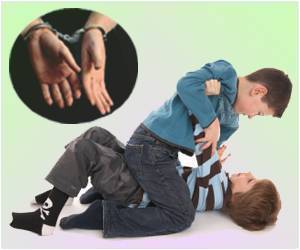Statistical data shows that participation in sports is found to be beneficial to a child's cognitive, emotional and behavioral well-being.

Her research was recently presented at TAU's Renata Adler Memorial Research Center for Child Welfare and Protection Conference.
A prescription for a healthier body and mind
Sports would be more effective than verbal therapy, she says, because while verbal therapy encourages children to control their behavior, research indicates that it does not reduce negative emotions. The introduction of sport, however, is able to reduce aggressive behavior as a result of quelling negative emotions.
In 25 schools across Israel, Shahar and her fellow researchers analyzed a 24-week-long after-school program based on sports. Half the participants comprised a control group who did not receive sports instruction, and the other half were systematically introduced to a variety of sports for five hours a week. Three times a week, students ranging from grades 3-6 played group sports such as basketball or soccer. Twice a week, they participated in martial arts, including judo and karate.
After 24 weeks of programming, Shahar compared questionnaires and evaluations executed at the beginning of the program with the same tests administered at the end. Her results demonstrated an improvement in traits relating to participants' self-control, such as self-observation, problem-solving skills, and delayed gratification which ultimately led to a decrease in the incidence of aggression. Only those children who exhibited higher levels of self-control also demonstrated the decline in aggression.
Advertisement
Girls had a much weaker response to sports programming than their male classmates, Shahar's research showed. Statistically, there was little change in the female population. Shahar reasons that girls do not often suffer from the same aggression problems as boys, and are less likely to exhibit a passion for sport.
Advertisement
Source-Eurekalert










